

By Heart. The Hidden Labor Behind Food: How to 'Read' a TomatoThe creator of a new documentary outlines how closely farmworkers' lives are connected to what's on grocery-store shelves Share Artists Must Be DelusionalAmerican Interior author and rock musician Gruff Rhys learned a lot by following in footsteps of a gullible pioneer.
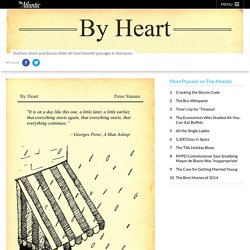
Share Write to Transcend Space and TimeReading Lolita in Tehran author Azar Nafisi says the best books are "republics of imagination" erasing national and historic boundaries. Share <div><a href=" title=""><img src=" alt="" /></a></div> The First Sentence Is a HandshakeAccording to science fiction writer William Gibson, a book's opening should be an inviting enigma to the reader—and a motivational benchmark for the writer. How to Write: A Year in Advice from David Mitchell, Yiyun Li, and More. Highlights from 12 months of interviews with writers about their craft and the authors they love Yiyun Li and David Mitchell, two of the authors interviewed for the By Heart series this year (John D.
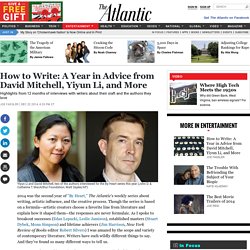
& Catherine T. MacArthur Foundation; Matt Sayles/AP) 2014 was the second year of “By Heart,” The Atlantic’s weekly series about writing, artistic influence, and the creative process. Though the series is based on a formula—artistic creators choose a favorite line from literature and explain how it shaped them—the responses are never formulaic. As I spoke to breakout successes (Edan Lepucki, Leslie Jamison), established masters (Stuart Dybek, Mona Simpson) and lifetime achievers (Jim Harrison, New York Review of Books editor Robert Silvers) I was amazed by the scope and variety of contemporary literature.
It turns out that working artists have great great practical advice to share. Here are my very favorite pieces of creative wisdom from the nearly 50 By Heart interviews in 2014. Cracking the Sitcom Code. As happens to so many of us, I was asked to write a sitcom for Croatian television.
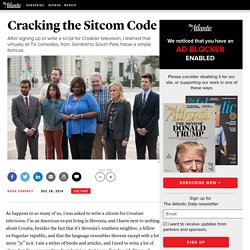
I’m an American ex-pat living in Slovenia, and I know next to nothing about Croatia, besides the fact that it’s Slovenia’s southern neighbor, a fellow ex-Yugoslav republic, and that the language resembles Slovene except with a lot more “js” in it. I am a writer of books and articles, and I used to write a lot of plays, but I’ve never written for television. So I immediately said, “Sure, of course I can do that,” before rushing off to Google “How to write a sitcom.” The Psychological Comforts of Storytelling. When an English archaeologist named George Smith was 31 years old, he became enchanted with an ancient tablet in the British Museum.
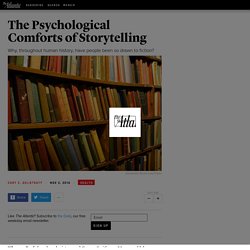
Years earlier, in 1845, when Smith was only a five-year-old boy, Austen Henry Layard, Henry Rawlinson, and Hormuzd Rassam began excavations across what is now Syria and Iraq. In the subsequent years they discovered thousands of stone fragments, which they later discovered made up 12 ancient tablets. But even after the tablet fragments had been pieced together, little had been translated. The 3,000-year-old tablets remained nearly as mysterious as when they had been buried in the ruins of Mesopotamian palaces. » Roy Peter Clark. The day after 9/11, 2001, I got to interview my cousin Theresa, who escaped from the 57th floor of Tower I after it was hit by the plane.
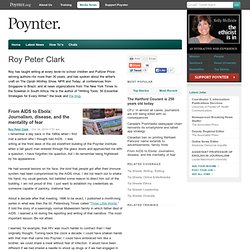
Thirteen years later now, I have read the story I wrote for the Poynter website based upon that interview. It gave me chills, not because of the way it was written or constructed, but for the sheer drama and terror of the catastrophe it describes. In my lifetime I can think of no story, no breaking news event – not even the Kennedy assassination – that affected me so deeply, that changed the way I view the world. Screenwriter Robert McKee teaches that every good story needs an “inciting incident,” that sudden, unexpected moment that rips through the fabric of normal life and changes almost everything.
On Breaking Bad, a high school chemistry teacher, Walter White, gets a diagnosis that he is dying of cancer. With a story as big as 9/11, some reporters decided to go small. By heart - Entertainment. Why Your Brain Loves Good Storytelling - Paul J. Zak. By Paul J.

Zak | 8:00 AM October 28, 2014 It is quiet and dark. The theater is hushed. James Bond skirts along the edge of a building as his enemy takes aim. Here in the audience, heart rates increase and palms sweat. Many business people have already discovered the power of storytelling in a practical sense – they have observed how compelling a well-constructed narrative can be. As social creatures, we depend on others for our survival and happiness. More recently my lab wondered if we could “hack” the oxytocin system to motivate people to engage in cooperative behaviors. In subsequent studies we have been able to deepen our understanding of why stories motivate voluntary cooperation. These findings on the neurobiology of storytelling are relevant to business settings.
My research has also shown that stories are useful inside organizations. Finally, don’t forget that your organization has its own story – its founding myth.